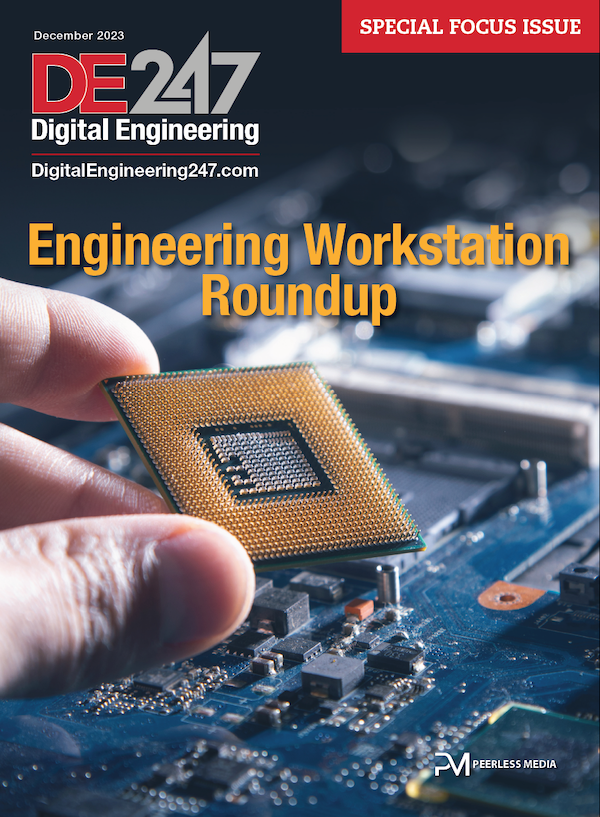Supercomputer Envy
Latest News
March 1, 2017
 Most digital engineers are familiar with battling memory limits or processor speed on their workstations to get a simulation done. The desired simulation gets squashed down to fit what the computer can do in a reasonable time. Even if you have access to a high-performance computing (HPC) cluster, it’s easy to be jealous of the simulations that could be done with the world’s most powerful supercomputers, such as the Chinese Sunway TaihuLight supercomputer with over 10 million processor cores, or the U.S. Titan supercomputer with 18,000 GPUs (graphic processing units). However, most engineers must get the best out of much smaller scale HPC—that’s their reality.
Most digital engineers are familiar with battling memory limits or processor speed on their workstations to get a simulation done. The desired simulation gets squashed down to fit what the computer can do in a reasonable time. Even if you have access to a high-performance computing (HPC) cluster, it’s easy to be jealous of the simulations that could be done with the world’s most powerful supercomputers, such as the Chinese Sunway TaihuLight supercomputer with over 10 million processor cores, or the U.S. Titan supercomputer with 18,000 GPUs (graphic processing units). However, most engineers must get the best out of much smaller scale HPC—that’s their reality.
Despite repeated hype that one academic institution or vendor collaboration after another is leading the way and has “enabled industry to access HPC for the first time” or “opened industry’s eyes to the opportunities of supercomputing,” it turns out that industry has been using HPC for many years. While supercomputers in industry are big too (aerospace, automotive, and oil and gas companies are home to a few supercomputers with more than 100,000 cores), most industry HPC installations are much smaller—perhaps a few hundred to a few thousand cores.
Delivering More than Supercomputer Speed
Though, some of those “small” industry HPC services are way ahead of most academic or national lab counterparts in one aspect. Industry HPC users have become better at ensuring HPC facilities are properly measured by what they deliver to the company and how efficiently they do that against the budget and resources they consume.
They may be small compared with the world’s fastest supercomputers, but successful HPC systems are big within that company’s R&D agenda. The cost of every potential HPC technology or service innovation is assessed against the impact it will deliver to the R&D program and to the company’s bottom line. Industry HPC services can only survive if they can prove that they are having a positive effect on the company goals, are value for the money, and are used as optimally as possible. Forget the flimsy metric of return on investment (ROI). Industrial HPC has a much more brutal metric: deliver critical capability to the company R&D goals or fail.
Demonstrating to senior management, users and stakeholders that their company’s provision and use of HPC compares well with the best—in their sector or globally—is one of the key actions of successful HPC service managers. There are two ways to do this.
One: The HPC manager can take part in the external HPC community and discover ideas for improvement or cost reduction, possible collaborations, etc. It takes time and effort to be effective at this, but remains one of the best ways of ensuring continued business value from HPC.
Or, second, the manager can call in the experts—specialists in HPC strategy and delivery who can assess how the company’s HPC program stacks up against the best, can identify opportunities to improve performance and operational effectiveness, and help demonstrate value for money to stakeholders. Finding such a specialist—especially those who have experience in industry and not just academia, and understands both business and technology—could be invaluable in demonstrating that your HPC facilities are cost-effectively helping engineers deliver the best benefits to the business.
Value in HPC
When I undertake independent reviews of how companies get the best value from their HPC investment, I see that the best HPC managers pursue both approaches. They engage with the HPC community themselves, but they also bring in external expertise to confirm and challenge their own judgement, and provide an independent voice to their stakeholders. Some of these dual-approach managers have themselves become among the most informed, visionary and practical voices in the wider HPC community.
In short, the strongest way to ensure that engineers get the best advantages from HPC is not the size of the machine, but having an overall focus on ensuring impact, and getting the right balance of external and in-house expertise. You may not be burning the megawatts like TaihuLight or Titan, but if your engineering and HPC choices are on point, then your engineers’ use of HPC can deliver the killer competitive edge to your company’s R&D—and that is what really matters. DE
Andrew Jones has 20 years of experience in scientific computing and HPC. He is responsible for NAG’s (nag.com) HPC Services & Consulting business. Contact him via [email protected].
Subscribe to our FREE magazine, FREE email newsletters or both!
Latest News






